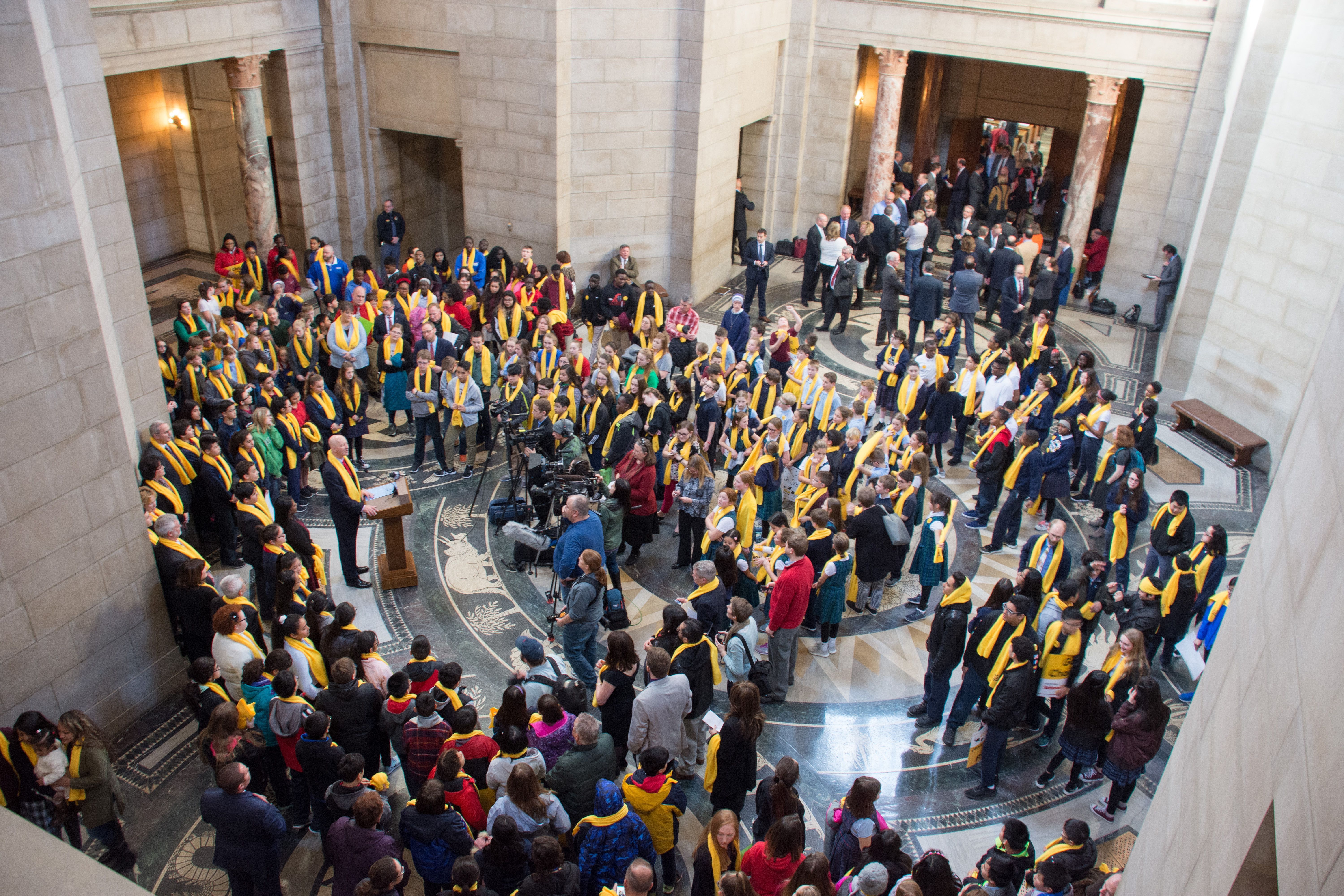
On July 4th, President Donald Trump signed into law the “One Big Beautiful Bill” Act. The 870-page budget reconciliation law contained any number of policy items. While the U.S. Bishops do not generally take a position on budget reconciliation bill packages, there were a number of provisions they favored but also numerous provisions they opposed. Among the favorable items was a permanent federal school choice program.
This newly enacted program is the nation’s first federal K-12 scholarship tax credit. Millions of children across the country will have an opportunity to benefit from it. In Nebraska, we will have the chance to resurrect school choice for thousands of families in need of better educational opportunities. This marks an incredible starting point for federal school choice and certainly worth celebrating.
Here’s what you need to know.
What Type of School Choice Program Is It? There are three main forms of school choice policies: scholarship tax credit programs, voucher programs, and education savings account programs. The federal school choice program is a scholarship tax credit program.
Scholarship tax credit programs allow taxpayers to redirect a portion of their tax liability to a scholarship granting organization (“SGO”) which turns those financial contributions into scholarships for families in need. As you’ll recall, we passed a state scholarship tax credit program in 2023 and raised around $10 million dollars for education scholarships for low-income children across the state.
What Are the Main Components of the Federal Program? The policy nuances of scholarship tax credit programs can come in a variety of shapes and sizes, such as who can make tax credit contributions and for how much, which students are eligible, and what can scholarships be used for and for what amount can they be issued. The federal school choice program contains these key components:
· Allows taxpayers to redirect up to $1700 of their federal income tax liability to an SGO, and receive a dollar-for-dollar tax credit on their federal taxes in return.
· There is no overall cap on the amount of money each state can raise per year, and allows funds for a particular state to be raised from taxpayers across the country.
· Funds can be used to provide scholarships for K-12 education expenses, including tuition and fees, academic tutoring, special needs services, books, supplies and other equipment, room and board, uniforms, transportation, supplementary items and services (including extended day programs), and computer technology or equipment, or internet access and related services.
· Public school, private school, or (depending on state law) home school students are eligible for scholarships to cover the listed educational expenses.
· Families must be 300% or below their county’s median gross income to be eligible for a scholarship. (This income eligibility marker allows for 85-90% of students across the country to be eligible. This is what is called “near-universal eligibility”.)
· The program begins on January 1, 2027.
How Do We Start Participating? Unfortunately, states cannot automatically participate in the program, but rather each state must take affirmative action to provide their students and taxpayers access to the program. (This opt-in provision will do greatest harm to politically “Blue States”.)
So How Does Nebraska Opt-In? Authority to opt-in to the program is given to either: 1) the Governor or 2) any other person, entity, or agency with authority under state law to opt-in to a federal tax program (which, in Nebraska, is the state legislature).
What’s Next? January 1, 2027, the date when this program can officially operate, is a long time from now, but there are key steps moving forward.
· Because he has authority to opt-in, we need Governor Jim Pillen to opt Nebraska into this federal school choice program. So, if you see the Governor out and about in your community, let him know how important it is that he opts-in to the new federal school choice program.
· The federal Department of Treasury will be responsible for developing rules and regulations and any other guidance documents for this program. The United States Conference of Catholic Bishops and the Nebraska Catholic Conference will be closely involved in and tracking this process.
· We need to make families across Nebraska aware of this newly passed program. Parents have a fundamental right to direct their children’s education, and this federal school choice program honors this right. As families become aware, they can also advocate with Governor Pillen about the importance and impact this program will make on their children’s education and why Nebraska must be an opt-in state.
As always, pray, pray, pray that school choice will be revived in Nebraska in a way that allows it to be permanent and not stolen away by the lucratively funded misinformation campaigns of special interest groups. Stay tuned for further developments!

